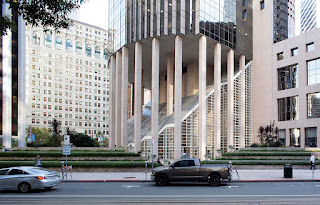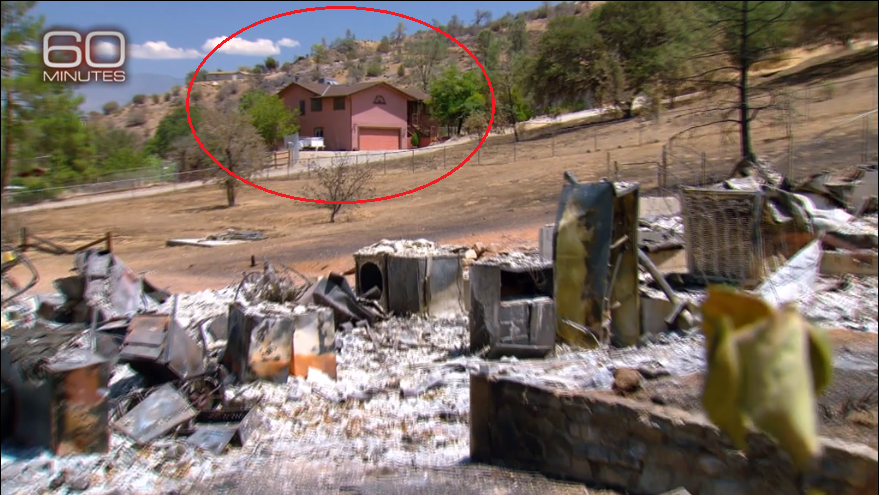101 California: The Only Gun Massacre I Witnessed
I was driving to downtown San Francisco to look for a summer job. We listened then to KGO AM 810 radio nearly round the clock. The familiar friendly voices of KGO turned serious before the 9AM talk show hour to deliver breaking news: a middle-aged man had "gone postal" on his ex-coworkers at a city high rise at 101 California street. It was still far away, off in the radio, in the media.
I found parking and job-hunted at the restaurants I planned to ask for waitress positions. I kept hearing "101 California 101 California" over the airwaves of passing cars, the way we attuned to same media among strangers back then. (Neighboring cars co-listening to the same radio is depicted in "Once Upon a Time in Hollywood". It was like that. Empathy weaver built-in.)
So I meandered down to 101 California and turned a corner to see a scrum of reporters at the corner. Boom michs, TV cameras, people writing into notebooks. Some serious, some relieved after hours of covering a stressful event. Right there I heard the voice of one KGO reporter coming out of a human. She and her assistants carried a large tape recorder and were re-winding a segment to replay and check.
Soon after the 1994 Assault Weapons Ban passed in Congress. The bill embedded a "sunset clause" meaning it would have to be renewed in 2004. I remember Senator Barbara Boxer pleading on daily kos in 2004 for readers to "sign a petition to renew the assault weapons ban" but people were distracted by the Iraq War. The bill was working but people don't notice when something is working, so they didn't bother to renew it. From wikipedia:
An assault weapons ban means people stop being able to legally sell semi-automatic rifles like the AR-15 used in the Uvalde, Texas elementary school massacre this week which killed 19 children and two teachers. An assault weapons ban doesn't mean the government will take them from people who already bought them. The killer of the fourth graders this week bought his AR-15 just before spraying bullets at an elementary school.
-----------------------------------
Further Reading:
KHJ, L.A.’s Coolest AM Radio Station, Is Basically a Background Actor in “Once Upon a Time in Hollywood” | Did you notice the authentic airchecks and classic DJs throughout Tarantino’s latest film?: lamag.com
"Asked in that same Pew survey if mass shootings would decline if guns were harder to obtain, about half of Americans said they would go down, but 42% said it would make no difference. Other surveys have found much the same feeling among a large swath of Americans. The argument about futility is one that opponents of change quickly turn to after a catastrophe. It’s a powerful rhetorical weapon against action." latimes.com 🐤

This work by AJ Fish is licensed under a Creative Commons Attribution-NonCommercial 4.0 International License.
I found parking and job-hunted at the restaurants I planned to ask for waitress positions. I kept hearing "101 California 101 California" over the airwaves of passing cars, the way we attuned to same media among strangers back then. (Neighboring cars co-listening to the same radio is depicted in "Once Upon a Time in Hollywood". It was like that. Empathy weaver built-in.)
So I meandered down to 101 California and turned a corner to see a scrum of reporters at the corner. Boom michs, TV cameras, people writing into notebooks. Some serious, some relieved after hours of covering a stressful event. Right there I heard the voice of one KGO reporter coming out of a human. She and her assistants carried a large tape recorder and were re-winding a segment to replay and check.
Soon after the 1994 Assault Weapons Ban passed in Congress. The bill embedded a "sunset clause" meaning it would have to be renewed in 2004. I remember Senator Barbara Boxer pleading on daily kos in 2004 for readers to "sign a petition to renew the assault weapons ban" but people were distracted by the Iraq War. The bill was working but people don't notice when something is working, so they didn't bother to renew it. From wikipedia:
The 101 California Street Shooting was a mass shooting on July 1, 1993, in San Francisco, California. The killings sparked a number of legal and legislative actions that were precursors to the Violent Crime Control and Law Enforcement Act, H.R. 3355, 103rd Congress. The Act took effect in 1994 and expired in September 2004 after the expiration of a sunset provision. At the time, the incident was the deadliest mass shooting in the Bay Area's history, being surpassed 28 years later by the 2021 San Jose shooting.[1]
An assault weapons ban means people stop being able to legally sell semi-automatic rifles like the AR-15 used in the Uvalde, Texas elementary school massacre this week which killed 19 children and two teachers. An assault weapons ban doesn't mean the government will take them from people who already bought them. The killer of the fourth graders this week bought his AR-15 just before spraying bullets at an elementary school.
-----------------------------------
Further Reading:
KHJ, L.A.’s Coolest AM Radio Station, Is Basically a Background Actor in “Once Upon a Time in Hollywood” | Did you notice the authentic airchecks and classic DJs throughout Tarantino’s latest film?: lamag.com
"Asked in that same Pew survey if mass shootings would decline if guns were harder to obtain, about half of Americans said they would go down, but 42% said it would make no difference. Other surveys have found much the same feeling among a large swath of Americans. The argument about futility is one that opponents of change quickly turn to after a catastrophe. It’s a powerful rhetorical weapon against action." latimes.com 🐤

This work by AJ Fish is licensed under a Creative Commons Attribution-NonCommercial 4.0 International License.




